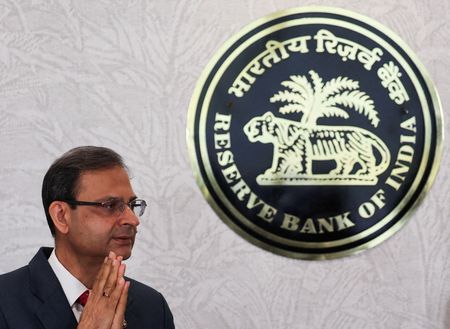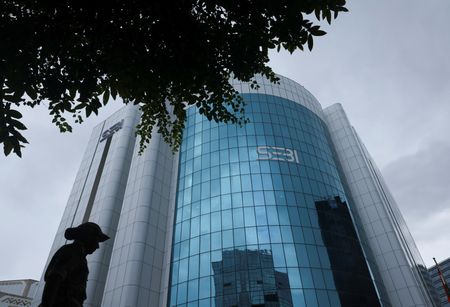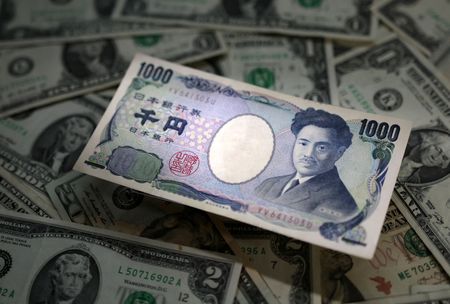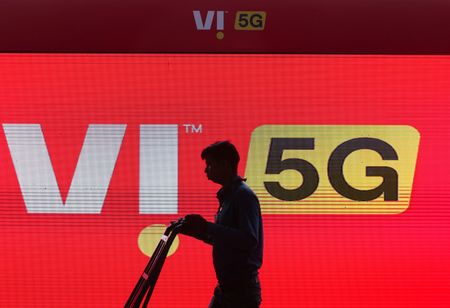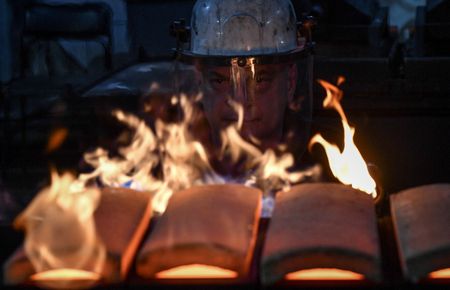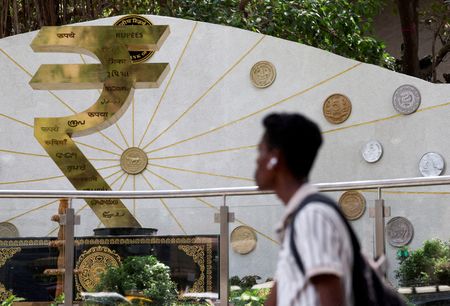By Nikunj Ohri and Aftab Ahmed
NEW DELHI (Reuters) -India’s economic fundamentals remain strong and its foreign exchange reserves, low inflation and a narrow current account deficit are buffers against risks from U.S. tariff hikes, its central bank chief said on Friday.
Reserve Bank of India Governor Sanjay Malhotra told a conference that countries around the world were experiencing fiscal stress. In comparison, and despite external challenges, “India stands as an anchor of stability in a volatile world,” he said.
U.S. President Donald Trump doubled tariffs on Indian goods to as much as 50% from August 27 over New Delhi’s continued imports of Russian oil.
The levy is among the highest on U.S. trading partners alongside Brazil, and economists say the move could hurt exports including textiles, leather goods and chemicals.
Malhotra said that flexibility and swift policy responses will be crucial as global uncertainties linger.
“You can’t control the storm, but you can certainly steer the ship,” he told the Economic Conclave in New Delhi, an annual economic conference organised by the finance ministry.
The RBI kept its policy rate unchanged at 5.5% on Wednesday, while signalling room to cut rates in December as it gauges the impact of tariffs on growth.
The central bank had cut the repo rate by a total of 100 basis points in the first half of 2025, but paused at its previous meeting in August.
The RBI expects inflation in the current financial year to come in at 2.6%, lower than its previous estimate of 3.1%.
FISCAL STRESS
Malhotra also flagged rising fiscal stress across other economies.
“Fiscally, almost every country is quite stretched. It is not apparent how the situation could be normalised, especially if the world enters a phase of lower growth,” Malhotra said.
While equity markets remain buoyant, he cautioned that fiscal risks are not fully priced in. “Equity markets do seem a bit complacent … a correction might be in the offing,” he said.
Despite these uncertainties, Malhotra said India stands out. “This is quite a feat for a large emerging market and makes India an anchor of stability in a volatile world.”
Finance Minister Nirmala Sitharaman, speaking at the same event, said the government is committed to increasing capital spending to support economic growth, but also said the economy remained resilient despite global challenges.
As part of the federal budget, in February India announced plans to spend a record 11.21 trillion rupees ($126.3 billion) on infrastructure for the fiscal year ending March 2026, slightly higher than the previous year.
(Reporting by Nikunj Ohri and Aftab Ahmed, Writing by Manoj Kumar; Editing by Alison Williams, Sonia Cheema and Susan Fenton)

